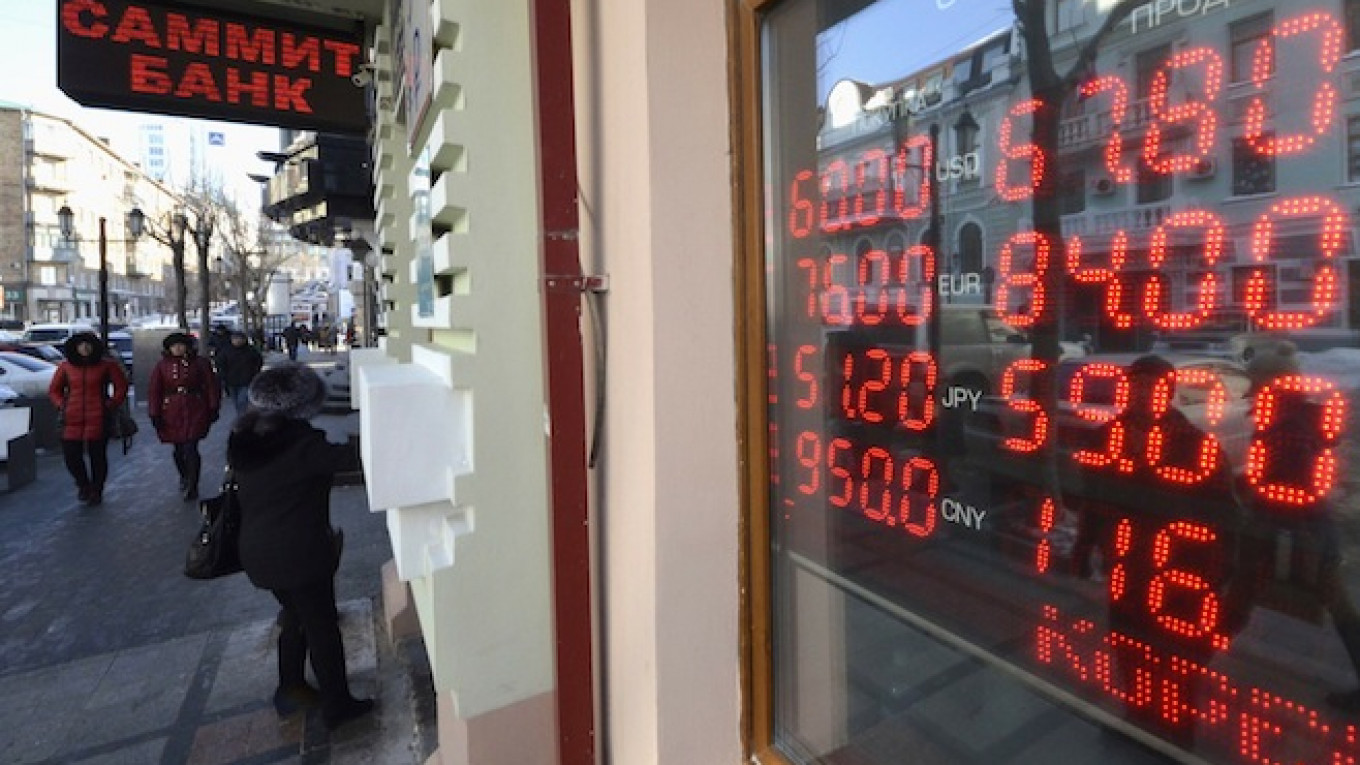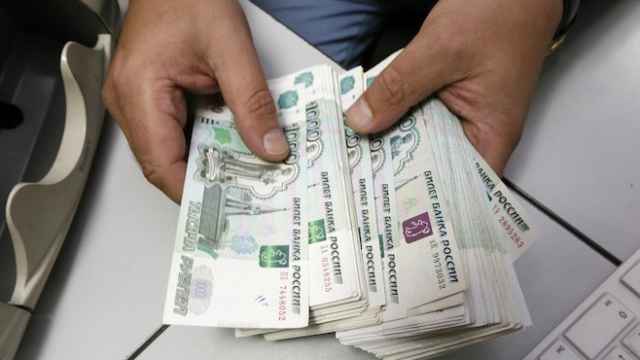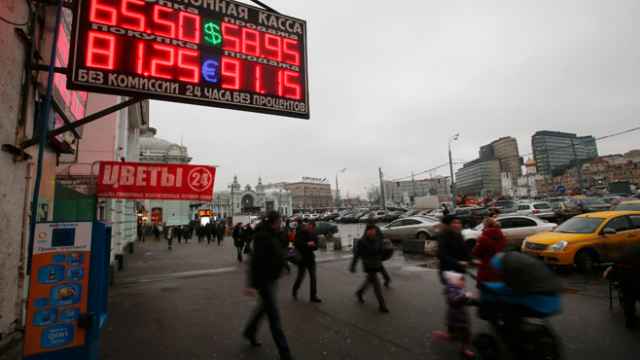Russia's ruble lost more ground against the dollar on Thursday before President Vladimir Putin's end-of-year news conference, expected to be dominated by what a government minister called a "perfect storm" hitting the economy.
The ruble was more than 2 percent weaker on the day, despite Central Bank action to prop up the currency and about 45 percent down against the dollar this year, hit by Western sanctions over the Ukraine crisis and low oil prices.
Putin has been silent as the currency collapsed this week before recovering some ground and is under pressure to show he knows how to pull Russia out of the crisis at the news conference starting at 12 p.m.
A prominent opponent, former Prime Minister Mikhail Kasyanov, said the crisis showed Putin had mismanaged the economy and that he should organize free elections to quietly end his almost 15-year domination of Russia.
"Russia is going into decline," Kasyanov said in an interview late on Wednesday, suggesting Putin should accept that "he needs an exit strategy" to leave power.
Economy Minister Alexei Ulyukayev said in a newspaper interview the Western sanctions were likely to last "a very long time" and Russia was paying the price for failing to carry out structural reforms, describing events as "the perfect storm."
"When a U.S. law is passed it is very hard to change it afterwards — looks like it will be in place for decades," Ulyukayev said, referring to U.S. moves on sanctions.
Pressure for 'Big Ideas'
Opinion polls show Putin has sky-high popularity ratings since annexing the Crimea peninsula from Ukraine in March, but the ruble's decline and Russia's slide towards recession could erode faith in Putin's ability to provide financial stability.
A 6.5 percentage point increase in the key lending rate to 17 percent failed to prop the ruble up on Tuesday. Russia has also spent more than $80 billion this year trying to shore it up. Putin failed in a State-of-the-Nation address on Dec. 4 to offer any big ideas to turn around the economy.
His annual news conference and phone-in, shown live on television, is usually a marathon performance that can last more than four hours.
Putin could use it to blame the West for Russia's problems, as he did on Dec. 4, but he could also use it to send a signal to the West that he wants to de-escalate tensions over Ukraine.
The European Union and the U.S. have imposed several rounds of sanctions on Moscow over the seizure of Crimea and because of its backing for pro-Russian separatists in a conflict that has killed more than 4,700 people.
EU and U.S. officials say they have seen some positive signs from recent comments by Russian officials on Ukraine but want Moscow to do more to resolve the crisis.
The Moscow Times is blogging the news conference live from noon. Click here for the latest updates.
A Message from The Moscow Times:
Dear readers,
We are facing unprecedented challenges. Russia's Prosecutor General's Office has designated The Moscow Times as an "undesirable" organization, criminalizing our work and putting our staff at risk of prosecution. This follows our earlier unjust labeling as a "foreign agent."
These actions are direct attempts to silence independent journalism in Russia. The authorities claim our work "discredits the decisions of the Russian leadership." We see things differently: we strive to provide accurate, unbiased reporting on Russia.
We, the journalists of The Moscow Times, refuse to be silenced. But to continue our work, we need your help.
Your support, no matter how small, makes a world of difference. If you can, please support us monthly starting from just $2. It's quick to set up, and every contribution makes a significant impact.
By supporting The Moscow Times, you're defending open, independent journalism in the face of repression. Thank you for standing with us.
Remind me later.






